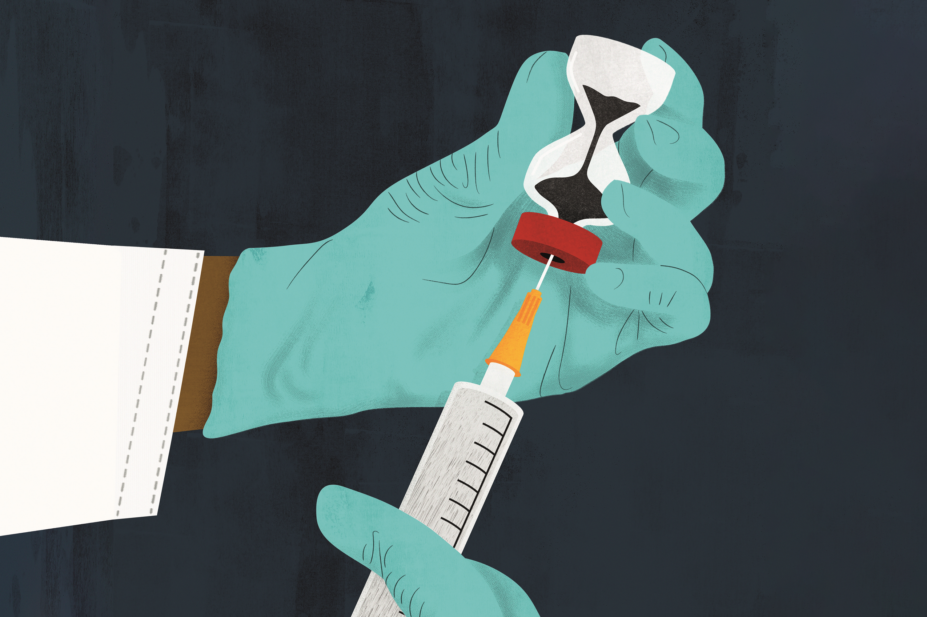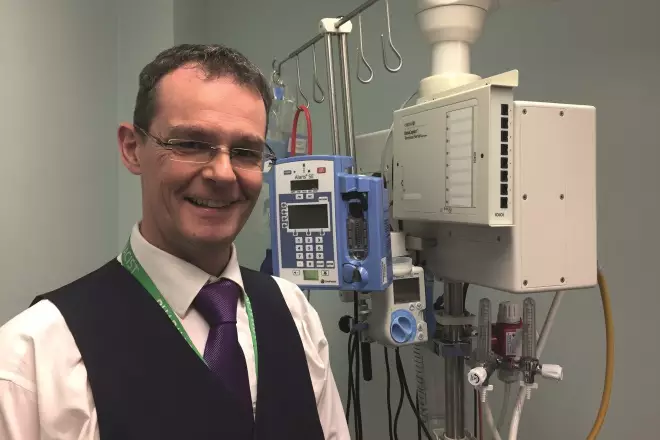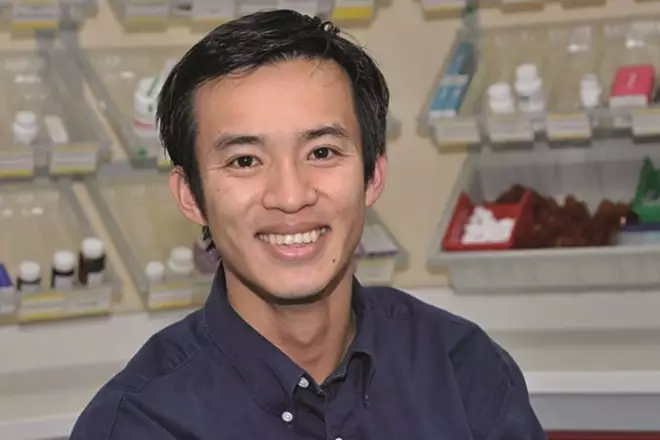
Mitch Blunt / Ikon Images
Imagine you are a critical care pharmacist at a large teaching hospital. During the ward round, the intensivist enquires about the appropriate infusion rate of intravenous nutrition for a cachexic patient with burns to 60% of their body, who is currently fluid overloaded. A nurse then approaches you about a septic patient with two central lines but four drugs to administer. Which of the drugs can be mixed? Which can be administered as a bolus and which via a Y-site connection?
Being able to handle complex clinical queries such as these in a high-pressure environment makes specialist pharmacists an indispensible part of the critical care multidisciplinary team (MDT).
On being indispensable
Mark Tomlin, consultant critical care pharmacist at Southampton Hospitals NHS Foundation Trust, has spent a quarter of a century working in critical care, where he has seen the pharmacist’s role evolve considerably.
As a junior pharmacist, Tomlin would visit the intensive care unit (ICU) in his lunch hour to satisfy his curiosity with critical care. “In those days it was a foreign environment for a pharmacist.” It was here that he recalls discovering how neuromuscular blockers were used to induce muscle paralysis, how supplements were used to aid nutrition and which antidotes to use for specific poisonings, all of which he had rarely encountered on a general medicine ward.
Moving forward to 2018, pharmacists such as Tomlin and his team of six are now an essential part of the critical care MDT, aiding in the reduction of patient medication errors and mortality rates, and driving economic sustainability by advising on the prescribing of cheaper alternative therapies. The role of a critical care pharmacist also extends to independent prescribing, providing teaching to peers, students, nurses and junior doctors, as well as conducting clinical research and drafting guidelines. The National Institute for Health and Care Excellence (NICE) guidance on delirium and renal dosing, for instance, was authored by pharmacists.
Those working alongside pharmacists in critical care, including doctors, certainly appreciate their expertise.
Gary Masterson, a consultant intensivist at Royal Liverpool University Hospital and president of the Intensive Care Society, says pharmacists are invaluable when it comes to treating patients with complex needs, such as organ failure.

Source: Courtesy of Gary Masterson
Members of the critical care multidisciplinary team, such as consultant intensivist Gary Masterson, find pharmacist involvement in patient care invaluable
“We have operational delivery networks in critical care and pharmacists are playing a vital role in these bodies and strengthening the link between commissioners and providers,” he says. “We will certainly see more network-lead pharmacists being appointed to ensure medicines safety.”
Masterson is also chair of the multi-professional Injectable Medicines Guide website (Medusa), which provides a clinical interface between pharmacy and clinicians. Pharmacists played a huge role in drafting the guidance.
Why make the move into critical care?
Many pharmacists make the shift simply because they want a new challenge and the ability to exercise their clinical reasoning. This was certainly the case for Mark Borthwick, a former community pharmacist and now consultant critical care pharmacist at Oxford University Hospitals NHS Foundation Trust.
“[In critical care] you need to be able to take the initiative in urgent situations and, if you do, others in the team, including doctors, physiotherapists, language therapists and respiratory specialists, will refer to you,” says Borthwick. He adds that many medicines used in critical care are unlicensed. There can be a lot going on behind the scenes with time pressures to get authorisation. “This is another buzz you get from the job.”

Source: Courtesy of Mark Borthwick
Participation in critical care ward rounds reveals a patient’s story in a way that notes on their own can never do, says Mark Borthwick, consultant pharmacist at Oxford University Hospitals NHS Foundation Trust
Greg Barton, chair of the UK Clinical Pharmacist Association Critical Care Education Group and specialist pharmacist at St Helen’s and Knowsley Teaching Hospitals NHS Trust in Merseyside, says one of the most interesting parts of his job is being able to use his experience to make a judgement. “You will see something in a patient that others in the team might not notice, and as a patient’s health improves you know you have contributed to their recovery.”
Like many pharmacists who follow this career path, Catherine McKenzie, consultant pharmacist at Guy’s & St Thomas’ NHS Foundation Trust in London, wanted a role where she could use her science training. According to McKenzie, “Critical care is a great job for pharmacists who love science in clinical practice and can think on their feet.”
Over her extensive career, McKenzie has developed treatment plans, prescribed medications and led a pain, agitation and delirium service, ensuring patients received the correct sedatives, opioid analgesics and antipsychotics. McKenzie also helped to set up a competency framework for ICU pharmacists to ensure they thrive in an environment where patients’ needs can change by the hour.
Collegiality and professional development
At Sheffield’s Northern General Hospital, consultant pharmacist Richard Bourne first became interested in critical care in the late 1990s. “When I began in critical care, I was a lone practitioner,” says Bourne. Today, he oversees a team of ten pharmacists and five technicians.
Bourne recruits Band 8A advanced-level pharmacists in critical care and Band 7 clinical pharmacists at foundation level, and supports them with extensive in-house training. “This has always been the best way to retain good pharmacists,” says Bourne, who works with his team members to help them move from foundation to advanced level by reviewing areas that may require improvement. This may include undertaking more research or developing better ways of working within a team. Bourne also travels the country visiting different centres to gather ideas on how to develop the critical care pharmacist’s role in enhancing medicines safety and improving prescribing.
Ongoing professional development and collegial support is even encouraged internationally, states Truc Nguyen, ICU pharmacist and pharmacy surgical team leader at Counties Manukau Health in New Zealand. Nguyen undertook a sabbatical in 2017, shadowing a number of ICU pharmacists in the UK, including Borthwick, not only to observe the similarities and differences in clinical practice, but also to share ideas and concepts for future developments within their respective areas. “Without any established critical care training or framework in New Zealand, travelling half a world away to visit other ICU pharmacists was one of the best things I have done for my professional development,” says Nguyen. “Being physically on site has strengthened our professional ties, which is an invaluable resource.”

Source: Courtesy of Truc Nguyen
Truc Nguyen, ICU pharmacist and surgical team leader at Counties Manukau Health in New Zealand, says developing international ties with critical care pharmacists in the UK is one of the best things he has done for his professional development
Challenges
Although Tomlin loves the challenge of not knowing what will happen each day, he accepts that a career in critical care may not suit everyone. “You are making decisions on your feet which could result in severe consequences,” he says. “You must have confidence in your own experience because you won’t always find the answer in a pharmacotherapy textbook.”
Barton agrees that having to defend recommendations that are not always clear cut can be challenging. “You cannot always ask for help, which can be difficult.”

Source: Courtesy of Greg Barton
Greg Barton, specialist pharmacist at St Helen’s and Knowsley Teaching Hospitals NHS Trust in Merseyside says one of the most interesting parts of working in critical care is being able to use his clinical knowledge to make a judgment
However, Bourne stresses, “Pharmacists need to be able to recognise the boundaries of their own knowledge and know when to ask for advice from subject matter experts — for instance, an infectious diseases consultant from a different hospital.”
Pharmacists are often also required to make difficult decisions and not recommend a drug if they believe it is not in the best interest of the patient, warns McKenzie. “There are times when you may need to be assertive, be able to work quickly and often for long hours,” she adds.
Advice for aspiring critical care pharmacists
Pharmacists keen on a career in critical care need to understand that this is a complicated area and that things do not always end well for patients, says Borthwick. “The role is emotionally challenging but can be very rewarding — you need to be resilient.”
The first step, advises Borthwick, is for those interested to get supervised exposure to critical care and gradually develop their skills from there. “Talk to different ICU pharmacists and listen to their stories. It is fascinating and useful to hear about how an individual’s career path brought them to this complex but highly rewarding field.”
Reading this article counts towards your CPD
You can use the following forms to record your learning and action points from this article from Pharmaceutical Journal Publications.
Your CPD module results are stored against your account here at The Pharmaceutical Journal. You must be registered and logged into the site to do this. To review your module results, go to the ‘My Account’ tab and then ‘My CPD’.
Any training, learning or development activities that you undertake for CPD can also be recorded as evidence as part of your RPS Faculty practice-based portfolio when preparing for Faculty membership. To start your RPS Faculty journey today, access the portfolio and tools at www.rpharms.com/Faculty
If your learning was planned in advance, please click:
If your learning was spontaneous, please click:


